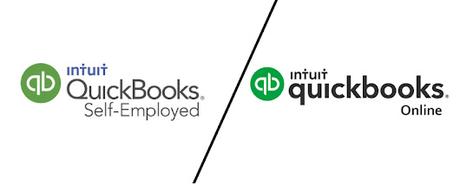
As a small business owner, managing finances can be a daunting task. Fortunately, QuickBooks offers two popular software options to help streamline your financial management process: QuickBooks Self Employed and QuickBooks Online. But which one is right for your business? In this article, we'll explore the differences between QuickBooks Self Employed Vs Online these two options, including their pros and cons, so you can make an informed decision on which one fits your specific needs. So let's dive in!
What is QuickBooks Self Employed?
QuickBooks Self Employed is an accounting software designed specifically for freelancers, independent contractors, and other self-employed individuals. It offers features such as income and expense tracking, invoicing, receipt scanning, and tax preparation tools.
This software aims to simplify the bookkeeping process by organizing all your financial data in one place. With QuickBooks Self Employed, you can easily categorize your expenses and keep track of your business finances without the need for a dedicated accountant or bookkeeper.
One standout feature of QuickBooks Self Employed is its automatic mileage tracking tool. This allows users to track their business-related travel automatically using GPS technology on their mobile devices.
Another benefit of this software is that it seamlessly integrates with popular third-party apps like PayPal and Square. This makes it easy for users to manage their payments from multiple sources in one central location.
QuickBooks Self Employed provides a simple yet effective solution for managing finances for self-employed individuals.
What is QuickBooks Online?
QuickBooks Online is a web-based accounting software designed for small businesses. It allows users to manage their finances from anywhere with internet access, making it an ideal solution for those who need to work on-the-go or remotely.
One of the key features of QuickBooks Online is its ability to automatically pull in bank and credit card transactions, saving time and reducing errors in manual data entry. Users can also create invoices, track expenses, and generate financial reports such as profit and loss statements.
QuickBooks Online offers multiple pricing plans based on the needs of different businesses, ranging from basic bookkeeping functions to more advanced features like inventory management and project tracking.
Users can also integrate third-party applications with QuickBooks Online through its extensive app store. This allows businesses to customize their accounting system according to their unique requirements.
QuickBooks Online provides a user-friendly interface that simplifies bookkeeping tasks while offering flexibility and scalability for growing businesses.
What are the Differences Between the QuickBooks Self Employed Vs Online
QuickBooks is a popular accounting software that offers two different versions for self-employed individuals and small business owners. QuickBooks Self Employed Vs Online have several differences, making each version more suitable for specific types of businesses.
One significant difference between the QuickBooks Self Employed Vs Online two versions is the pricing model. QuickBooks Self Employed has a straightforward pricing structure with only one plan available at $15 per month, while QuickBooks Online offers four different plans with varying prices depending on features and number of users.
Another distinct difference is in their target market. As its name suggests, Quickbooks Self Employed caters to self-employed individuals such as freelancers or independent contractors who need basic bookkeeping tools. Meanwhile, Quickbooks Online targets small business owners who require advanced features like inventory management and payroll services.
In terms of functionality, both QuickBooks Self Employed Vs Online versions offer invoicing capabilities but differ in their reporting options. While QuickBooks Self Employed provides essential reports like profit & loss statements and tax summaries, QBO offers more customization options with over 100 reports available.
Data entry methods also vary between the QuickBooks Self Employed Vs Online versions. With QBSE's automatic mileage tracking feature through GPS integration, it saves time for self-employed workers. In contrast,QBO focuses on automated bank feeds to minimize manual data entry across multiple accounts
Choosing between QBSE vs QBO depends on your goals; if you're looking for affordable basic bookkeeping software suited to entrepreneurs then go with QBSE otherwise opt-in for QBO if you run a larger organization that requires full-scale accounting functions
Pros and Cons of QuickBooks Self Employed Vs Online
QuickBooks Self Employed and QuickBooks Online are both excellent accounting software options for small business owners. However, each one has distinct advantages and disadvantages that should be considered before making a decision.
One of the biggest advantages of QuickBooks Self Employed is its ease of use. It’s designed specifically for self-employed individuals who need to manage their finances quickly and easily. With features like automatic mileage tracking and estimated quarterly tax payments, it can save users a lot of time and hassle.
On the other hand, QuickBooks Online offers more advanced features for businesses with larger amounts of data to manage. For example, it allows multiple users to access the same account simultaneously, which can be very useful for teams or firms.
Another advantage of QuickBooks Self Employed is its affordability. The pricing plans are straightforward and reasonable compared to alternatives in the market.
However, one disadvantage of QuickBooks Self Employed is that it lacks some features that may be important to certain businesses such as inventory management or accounts payable/receivable functionality - these type capabilities being present in full fledged online version instead.
Ultimately, deciding between these two software options depends on your specific needs as a business owner. By weighing their respective pros and cons against your own requirements you will make an informed choice about which option best fits your needs!
Which one is better for your business?
So, which one should you choose for your business needs? The answer to this question depends on the type and size of your business.
QuickBooks Self Employed is ideal for freelancers, solopreneurs, and independent contractors who want a simple way to manage their finances. It's perfect if you have only a few clients and don't require much more than invoicing and basic expense tracking.
On the other hand, QuickBooks Online is better suited for small businesses that need more robust accounting features like inventory management or job costing. If you have employees or plan to hire them in the future, QuickBooks Online also offers payroll services.
While both versions offer similar features such as bank syncing and reports generation; however, with QuickBooks Online offering more flexibility with integrations such as Shopify integration where self-employed doesn’t provide that level of integration.
Consider your budget too-Quickbooks online offers multiple pricing plans while there’s only one Quickbooks self-employed plan available at $15/month
Ultimately it comes down to assessing what works best for your business requirements so weigh out all pros & cons before making any decision
Conclusion
After examining the key differences and benefits of QuickBooks Self Employed vs Online, it is clear that each option has its own unique advantages.
QuickBooks Self Employed is perfect for freelancers and independent contractors who require a simple accounting solution to manage their finances. It offers easy-to-use features that can help them track income and expenses, calculate taxes, and generate invoices.
On the other hand, QuickBooks Online is designed for small businesses with more complex accounting needs such as inventory management or payroll processing. It comes with advanced reporting tools, which allow business owners to analyze their financial data in detail.
Ultimately, the choice between QuickBooks Self Employed vs Online depends on your specific business needs. Consider your budget, company size, industry type and how much time you can dedicate to managing your accounts before making a decision.
Both options offer free trials so try them out before committing to one or the other.
Regardless of which version you choose ultimately consider using either QuickBooks product will give you peace of mind when it comes to effectively managing your finances allowing you more focus on growing your business!
Source: https://gbuzzn.com/quickbooks-self-employed-vs-online-which-one-fits-your-business-needs/

